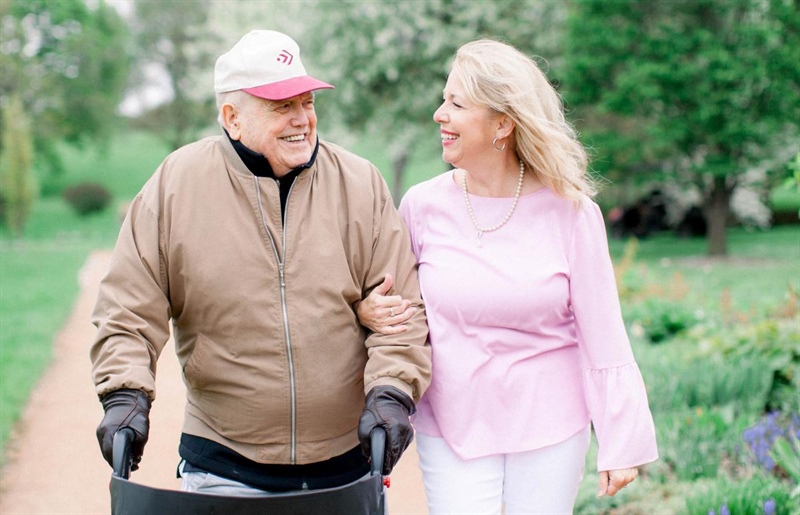How Companion Care Helps Improve Cognitive Health

According to the National Health Institute, about 28% of adults in the United States live alone. This equates to about 13.8 million people who may suffer from feelings of loneliness and isolation.
These feelings of loneliness and isolation can cause major health problems, such as high blood pressure, heart disease, obesity, Alzheimer’s disease, depression, and even death. Cognitive health, as you can see, is one of the areas where people can decline while being alone too much. Those living with cognitive impairments and living alone face other unique challenges as well. They may want to interact with people, but feelings like fear and distrust can cause them to remain indoors without reaching out to others for support.
Companion care is a great resource for improving cognitive health for those living alone. A study performed by Dr. Elena Portacolone showed that society needs to support those living alone by increasing adults’ social integration and surroundings.
That’s where companion care comes in.
What is Companion Care?
Companion care is when a trained adult, or caregiver, spends time with those living with cognitive impairments, disabilities, or aging. These caregivers provide social support to those who need it and are otherwise unable to go out on their own and socialize.
Caregivers can play games, perform light housekeeping, help prepare meals, or just sit and chat with an individual. This increases social interaction and can improve cognitive health.
There are many other benefits to companion care, which include peace of mind for the rest of the family.
How Does Companion Care Improve Cognitive Health?
There are many ways that companion care can improve cognitive health. The extra attention provided by caregivers boosts the individual’s well-being and gives them the attention they may be craving.
Combat Cognitive Problems
Companion care also helps combat loneliness, boredom, and isolation, three issues that can cause cognitive decline. With the support of a companion or caregiver, an individual feels less isolated and happier. When a companion develops a friendship with the individual, they can flourish.
Keep Them Active
Most people know that physical activity releases endorphins, which give people feelings of happiness and joy. Companions can keep individuals more active by going for walks, helping perform exercises, or even dancing, and can help provide positive hormones, which helps combat cognitive decline.
Engage in Cognitive Stimulation
A companion can help individuals with doing puzzles, reading, or reminiscing about old times, which helps keep their minds alert and active. These kinds of mind activities are good for staving off cognitive decline.
Keep Medication Schedules
While companions are not medically trained, they can still help individuals remember to take their prescribed medications, which helps them stay healthier, particularly if these medications are prescribed to help with various cognitive ailments like depression or anxiety.
Engage in Socialization
Socialization can boost one’s self-esteem and improve cognitive function. Even the power of laughter has amazing effects, like boosting an individual’s mood, lowering blood pressure, and reducing the risk of cardiovascular diseases.
Simply by engaging in conversation with an individual, companions can significantly improve the individual’s health and happiness.
Choose Joyful Companions for Your Loved One
There are many reasons to choose Joyful Companions for your loved ones in the Twin Cities area. Not only do our companions provide beneficial services for your loved ones, but we can also communicate regularly with you and your family about their health and update you about any changes in their behavior. Companions provide peace of mind for families who cannot physically be with their loved ones at all times.
Our companions are flexible to fit your needs and lifestyle. We can work around your schedule to provide companion care for your loved one. We also provide respite support when you need a break from being the primary caregiver.
For more information, call 763-544-0401 or send us a message online. We’d love to hear from you and provide a free, in-home consultation.